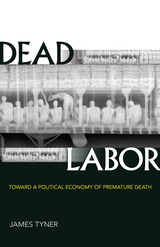
William Lazonick explores how technological change has interacted with the organization of work, with major consequences for national competitiveness and industrial leadership. Looking at Britain, the United States, and Japan from the nineteenth century to the present, he explains changes in their status as industrial superpowers. Lazonick stresses the importance for industrial leadership of cooperative relations between employers and shop-floor workers. Such relations permit employers to use new technologies to their maximum potential, which in turn transforms the high fixed costs inherent in these technologies into low unit costs and large market shares. Cooperative relations can also lead employers to invest in the skills of workers themselves--skills that enable shop-floor workers to influence quality as well as quantity of production.
To build cooperative shop-floor relations, successful employers have been willing to pay workers higher wages than they could have secured elsewhere in the economy. They have also been willing to offer workers long-term employment security. These policies, Lazonick argues, have not come at the expense of profits but rather have been a precondition for making profits.
Focusing particularly on the role of labor-management relations in fostering "flexible mass production" in Japan since the 1950s, Lazonick criticizes those economists and politicians who, in the face of the Japanese challenge, would rely on free markets alone to restore the international competitiveness of industry in Britain and the United States.

A groundbreaking consideration of death from capitalism, from the seventeenth to the twenty-first century
From a 2013 Texas fertilizer plant explosion that killed fifteen people and injured 252 to a 2017 chemical disaster in the wake of Hurricane Harvey, we are confronted all too often with industrial accidents that reflect the underlying attitude of corporations toward the lives of laborers and others who live and work in their companies’ shadows. Dead Labor takes seriously the myriad ways in which bodies are commodified and profits derived from premature death. In doing so it provides a unique perspective on our understanding how life and death drive the twenty-first-century global economy.
James Tyner tracks a history from the 1600s through which premature death and mortality became something calculable, predictable, manageable, and even profitable. Drawing on a range of examples, including the criminalization of migrant labor, medical tourism, life insurance, and health care, he explores how today we can no longer presume that all bodies undergo the same processes of life, death, fertility, and mortality. He goes on to develop the concept of shared mortality among vulnerable populations and examines forms of capital exploitation that have emerged around death and the reproduction of labor.
Positioned at the intersection of two fields—the political economy of labor and the philosophy of mortality—Dead Labor builds on Marx’s notion that death (and truncated life) is a constant factor in the processes of labor. Considering premature death also as a biopolitical and bioeconomic concept, Tyner shows how racialized and gendered bodies are exposed to it in unbalanced ways within capitalism, and how bodies are then commodified, made surplus and redundant, and even disassembled in order to accumulate capital.
READERS
Browse our collection.
PUBLISHERS
See BiblioVault's publisher services.
STUDENT SERVICES
Files for college accessibility offices.
UChicago Accessibility Resources
home | accessibility | search | about | contact us
BiblioVault ® 2001 - 2024
The University of Chicago Press









